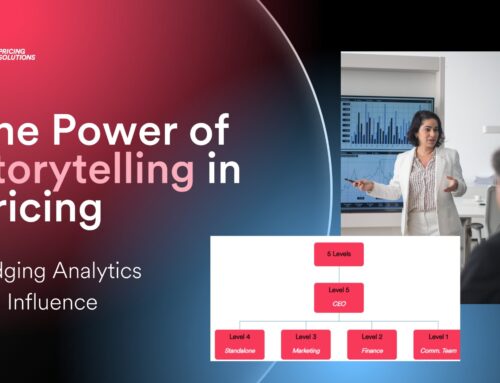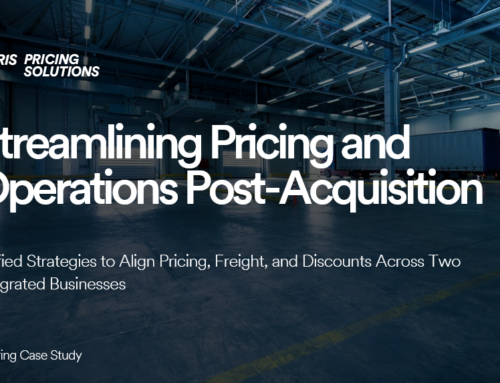by Paul Hunt – President
If your company’s sales department is in charge of pricing, that’s like putting Dracula in charge of the blood bank!
How often have you been in the following situation? You have a premium product with significant advantages over the competition. Year-end is approaching, and you are trying to capture a new account. You find yourself lowering your price to the point you are not sure you want the business, and yet your sales representative is telling you that the customer does not value the superiority of your product and you must lower the price to break into the account for future, more profitable sales. And so you lower the price and win the account, but you are left wondering if you have left a lot of money on the table.
Revenue-Based Compensation
This is a common problem because most companies pay their salespeople commissions based on revenue rather than margin, and the easiest way to grow revenue is to lower the price. The result is highly dysfunctional — the company is losing money, while the salesperson is making a fortune.
Revenue-based compensation structures have the following symptoms:
- The sales force is negotiating harder internally than externally.
- The salespeople are getting rich, but the company is not.
- Whenever you discount, you are frowning, but your sales rep is smiling.
- The sales and finance departments are constantly getting into epic battles about pricing.
The solution to this problem is to fix the incentives, by rewarding sales reps for the right behavior. For example, a leading technology company was paying commissions to its sales team based on revenue. As a result, the company found itself constantly discounting its cutting-edge technology because customers “were not willing to pay for the benefits,” according to the sales team.
And yet, some of the company’s salespeople rarely had to discount, even though they were selling to the same types of accounts as the others. What was their secret?
Selling The Value
They were the value sellers. In other words, they sold the value of the company’s technology, regardless of the compensation structure. But no matter how hard the company tried to train the other salespeople to behave similarly, it did not stick.
Therefore, it stopped preaching about value-based selling and started rewarding it, by changing the compensation structure. Instead of rewarding revenue, it rewarded margin.
The result: Money began to flow into the company, thanks to higher margins.
There are two major changes you will notice when you make this shift in sales-force compensation. First, the sales force will demand that you deliver on your promises of great products and service. After all, customers expect that when they pay full price. The other change you will experience is a huge profit gain, because that, in a nutshell, is what pricing improvement does!
I present frequently at conferences, and I often ask members of the audience to raise their hand if they pay their sales force based on margin. A few hands always go up, and the answer to my question, “how has it worked?” is: “Fantastic. Our profits grew dramatically.”
Concerns and How to Deal With Them
But before you believe I am promising nirvana, you probably have some concerns. One of the most common is that many companies do not want to give their sales team cost information because they are afraid that customers may find out and use it against them.
One of my clients, who we’ll call “Ross,” came up with an elegant solution that ensured he did not have to provide cost information, but still got the benefit of the sales team selling high margins. Ross’s company sells a premium product that charges double that of its nearest competitor. The way in which he manages to keep the sales force focused on margins is by holding the team responsible for discounting.
For example, let’s say that if you cut your price by 10%, it reduces your profits by 33%. On a revenue-based structure, the salesperson’s commission would decline by only 10%.
Ross, on the other hand, created a scale in which the salesperson’s commissions decline by an amount similar to what the company loses (without providing any cost information). Therefore, if a salesperson cuts the price by 10%, his commission drops by 33%. Consequently, sales reps find ways not to discount and negotiate harder with the customer than they do with you.
One caveat, however. If you have a volume-addicted sales force, only about 20% of them will easily gravitate to this new structure.
They are the ones who naturally sell value. About 50% of the sales team will be open to and interested in learning how to become value sellers. About 30% will have to leave — they can’t change their tactics any more than a leopard can change its spots. They may be great people, but they are dragging your company into the no-profit zone!
So don’t let your salespeople become margin-sucking Draculas by paying them commissions based on revenue; restructure their commission so that they will be rewarded for selling value.
phunt@www.pricingsolutions.com
– Paul Hunt is president of Pricing Solutions Ltd. His pricing column appears monthly in the Financial Post
Read more at the Financial Post





